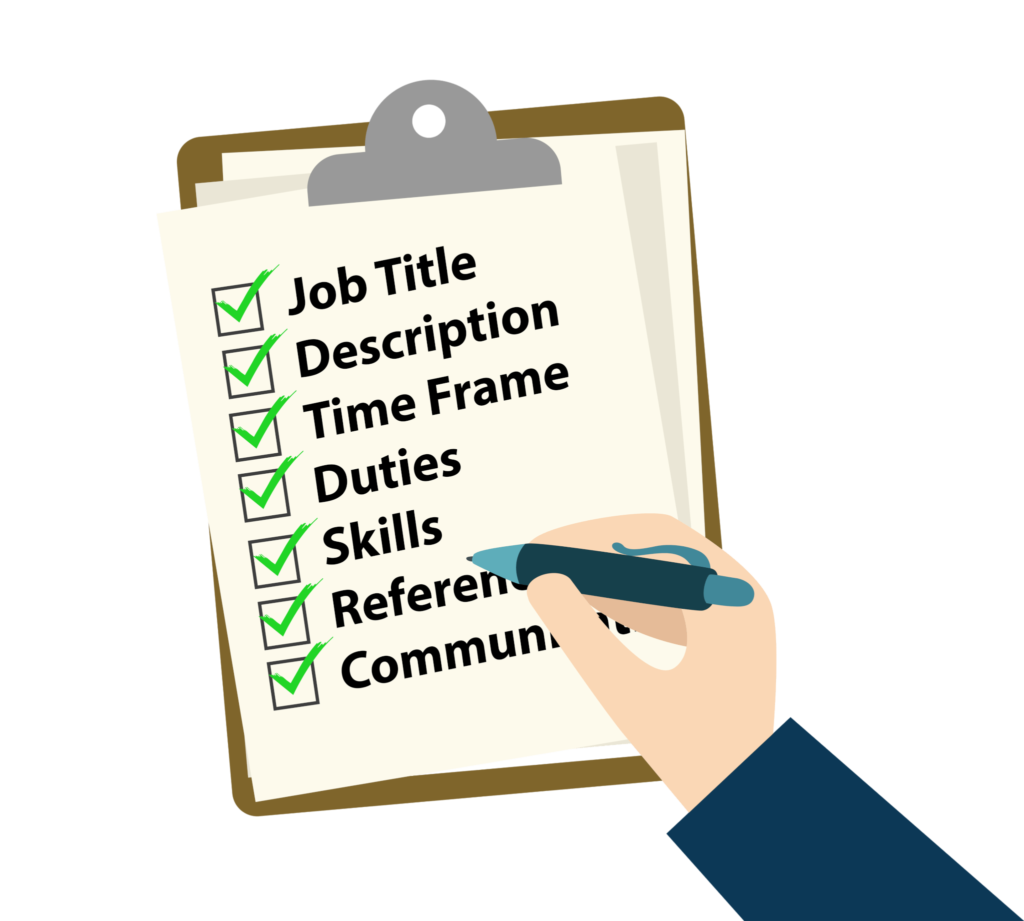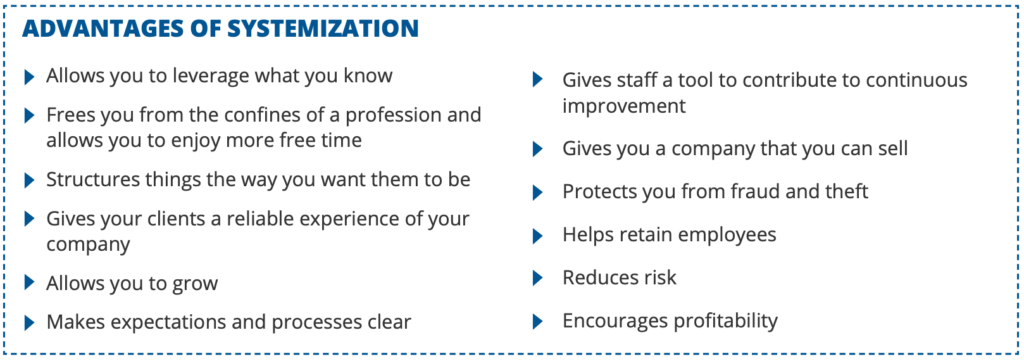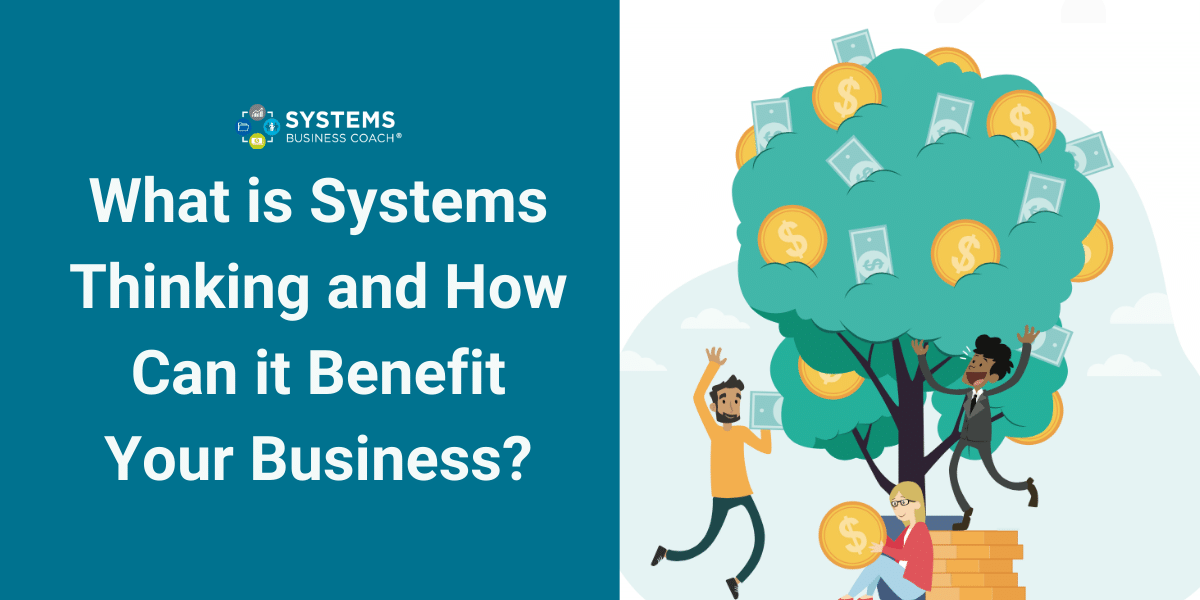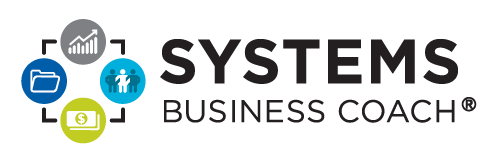Are you looking for a strategy that can turn your small business from chaos to calm, struggling to profitable? If so, you are going to love systems thinking.
What is systems thinking?
Systems thinking is a mindset and strategy for solving problems. When someone uses systems thinking they analyze HOW something is happening and make changes to the elements that produce that result.
According to Donella H Meadows, author of Thinking in Systems, a Primer, “A system is an interconnected set of elements that is coherently organized in a way that achieves something.”
Every action that is currently happening in your organization – either as planned or as decided by the individuals who do them – are the systems that are getting you the results you currently have.
When you think in systems, you are looking at the elements of a problem and how you can reorganize or change them to get the results you want.

Why is it important to think systems?
Try as we might to lock down permanent solutions in our business, we are constantly reminded that we are living in a time of rapid change. What works today in one economic environment may not work in the future as governments, climate and economic times change.
By nature, entrepreneurship requires constant changing and readjusting. Maybe you’ll need to hire and train another employee again, or you need to produce a variation on your marketing campaign. When you think in systems, you look back at what you’ve done in the past and see where you can adjust and improve. When you are aware of your systems, you don’t need to start from scratch with each new task.
Systems thinking therefore becomes a constant way of being in a successful organization. When something is not working, make it part of your company culture to ask, “What is the missing or broken system?” or “What do we need to change to get a better or more desired result?”

How to use systems thinking in business
Systems thinking will free you from the complexities of dealing with ongoing frustrations in your organization. Documenting the desired way your company operates will reduce errors and improve customer satisfaction. Ultimately, this gives you greater personal freedom as the owner because you won’t have to keep telling everyone what to do. A documented system is a blueprint for business success.
Most businesses start small without any form of documentation and with a few key individuals holding most of the operational knowledge. The business owner typically holds most of this knowledge in their head and is the constant go-to person for answers. Often, they can end up doing the majority of the work because they are the only one who knows “how” to do it.
Create some baseline documented systems and be open to having to re-write, re-configure or throw out a system that is no longer serving your organization’s purpose.
Systems thinking example
In business, systems show up everywhere. Everything you do or don’t do, in your business contributes to your systems. There are systems in your leadership, finances, team, marketing and operations.
For example, let’s look at your hiring systems
The purpose of a hiring system is to find the perfect candidate for your company who can help bring your vision to life. The goal is to find this person every time you hire for a position. Therefore, your hiring systems are about creating consistent, predictable results. Whether you’re a two-person business or a company with 300+ employees, a hiring system will take the guesswork out of finding the right person for the job.
So what happens in most small businesses? So often, owners abandon systems thinking when it comes to hiring a team. They end up working double or triple duty to fill gaps in the team they already have. When or if they get around to it at 2:00 a.m. Sunday morning, they thumb through the pile of resumes collecting dust on their desk. Anybody here who can help? Anybody at all? I just need somebody . . . anybody.
To avoid this, you can adjust the elements of your hiring system. Do you have a position agreement? Are you posting job ads to the right boards that your ideal candidate will be on? Are holding one round or two rounds of interviews? Where are the gaps? How can you fix them?

Benefits of systems thinking in business
Systems thinking is the key to owning an organized and profitable business that runs independently of you. When you use systems, you’ll see a lot of positive changes and opportunities.

Possibly the greatest advantage to a systematized organization is that the focus is on the process, not people being the blame for things that go wrong. When you shift the focus from blaming people to collaborating on developing world-class systems, you create a better place to work and everybody wins.
There are no limits!
This mindset of ‘systems thinking’ turns problem-solving into an exciting game of continuous improvement. What are your goals this year? What does your dream business look like? Chances are systems thinking can get you there!
Until next time, enjoy your Entrepreneurial Journey












